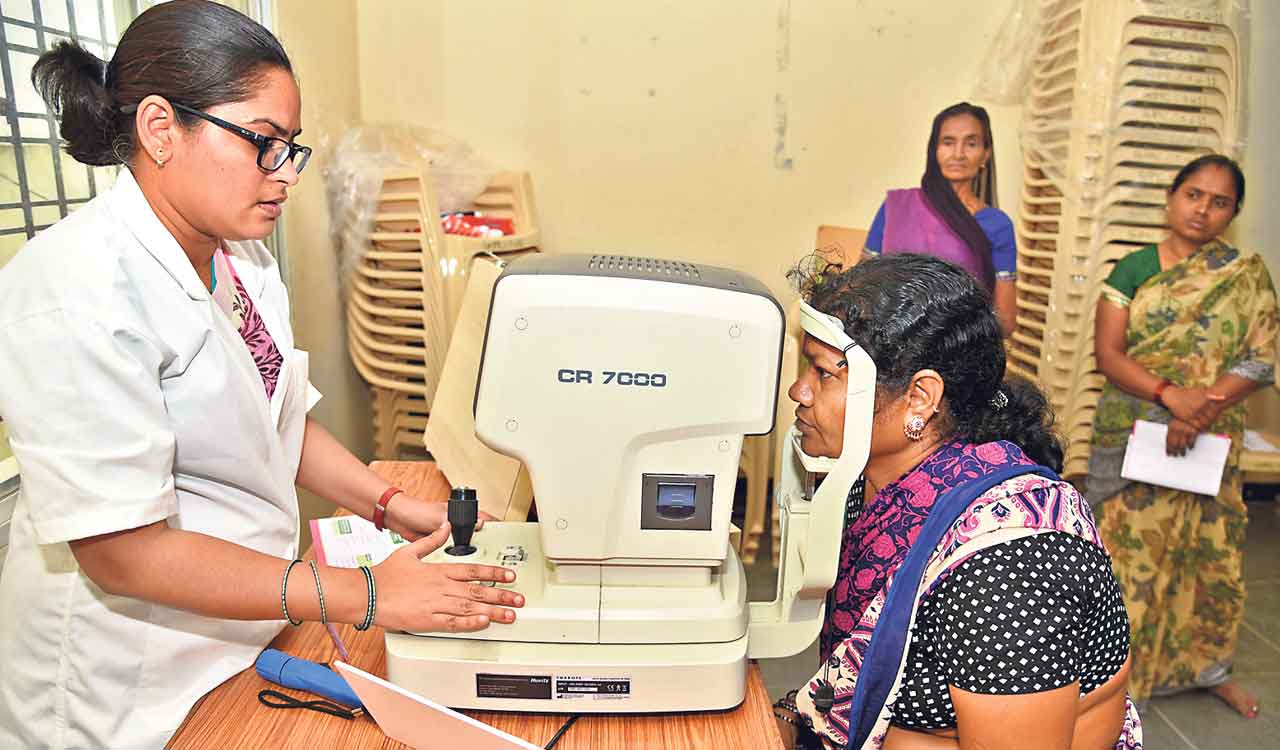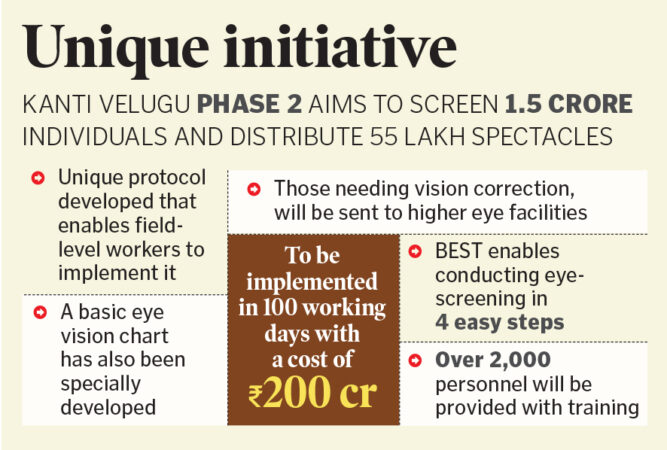Telangana is the first state in the country to implement this unique initiative.
UPDATE – 12:31 AM THURSDAY – DECEMBER 22

file photo.
Hyderabad: In the next few months, the Telangana state government will roll out a unique and large-scale population-based eye screening program ‘Kanti Velugu’ which is rarely undertaken by any other state. Check the plan. Organizing a large-scale eye screening program aimed at screening the eyes of at least 1.5 million people in Telangana state is no easy task. Technology, technical expertise and well-trained human resources will play a huge role in the smooth implementation of the new plan, as evidenced by the success of the first phase of Kanti Velugu in 2018.
Implementing this requires critical planning and draws on extensive technical knowledge, medical infrastructure and a highly trained workforce. Technology at every level has been instrumental to Kanti Velugu’s success, from developing an exclusive technology agreement to launching an eye screening program, procuring healthcare infrastructure, training healthcare staff and customizing data entry software.
Basic eye screening tests (best):
Prior to the first phase of Kanti Velugu, no mass eye screening program of this magnitude had been undertaken in the Indian public healthcare system. In fact, Telangana was the first state in the country to launch such a unique initiative, and other states, including neighboring Andhra Pradesh, have borrowed the concept and launched similar initiatives.
With no precedent, the Ministry of Health leveraged the technical prowess of senior ophthalmology researchers at the LV Prasad Eye Institute (LVPEI). For the implementation of the Kanti Velugu program, LVPEI and health department researchers collaborated for the first time to create an innovative Basic Eye Screening Test (BEST) protocol to guide healthcare professionals in conducting the program.
LVPEI researchers provided technical knowledge and nearly 200 medical staff, project managers and ancillary ophthalmology staff were trained. Nearly 50 teams of vision experts from Lvpei Eye Hospital also stationed in various districts.
A challenge in implementing a large-scale eye screening program is addressing the inherent shortage of physicians or ophthalmologists. To address this, the BEST protocol aims to enable primary health workers to perform basic primary eye screening at community doorsteps.
Dr. Srinivas Marmamula of LVPEI said in a 2020 paper on Telangana Kanti Velugu in the prestigious Indian Journal of Ophthalmology: “The BEST protocol is low cost, fast, takes only 2 to 3 minutes, and acts as a referral In particular, it is useful for mass community screening programs, where it not only helps estimate the burden of near and far vision loss, but also provides information on gross extraocular diseases (eg, pterygium, prominent corneal scars, etc.).”
After a two-hour training session, the protocol can be used by ASHA (Accredited Social Health Activists), Auxiliary Nursing Midwives (ANMs), and other primary health workers. The BEST protocol is performed with subjects wearing glasses in well-lit conditions and can be completed in four simple steps.
method
To implement Kanti Velugu, nearly 857 teams were deployed, each team consisted of 10 people including 1 medical staff, 2 optometrists, 1 supervisor, 1 ANM, 1 nurse, 2 ASHA staff and 2 data entry operator. Between August 2018 and March 2019, the task force conducted more than 800 eye screening camps across the state over an eight-month period.
Eye care experts from research institutions, including LVPEI, thoroughly trained and mentored field staff before deploying them. Health authorities hire technicians such as optometrists from private and third-party institutions under contract for a period of six months. Field crews use custom software for digital data entry and monitoring.All patients who are screened, their data is linked to their Aadhaar number, which maintains a lot of transparency

